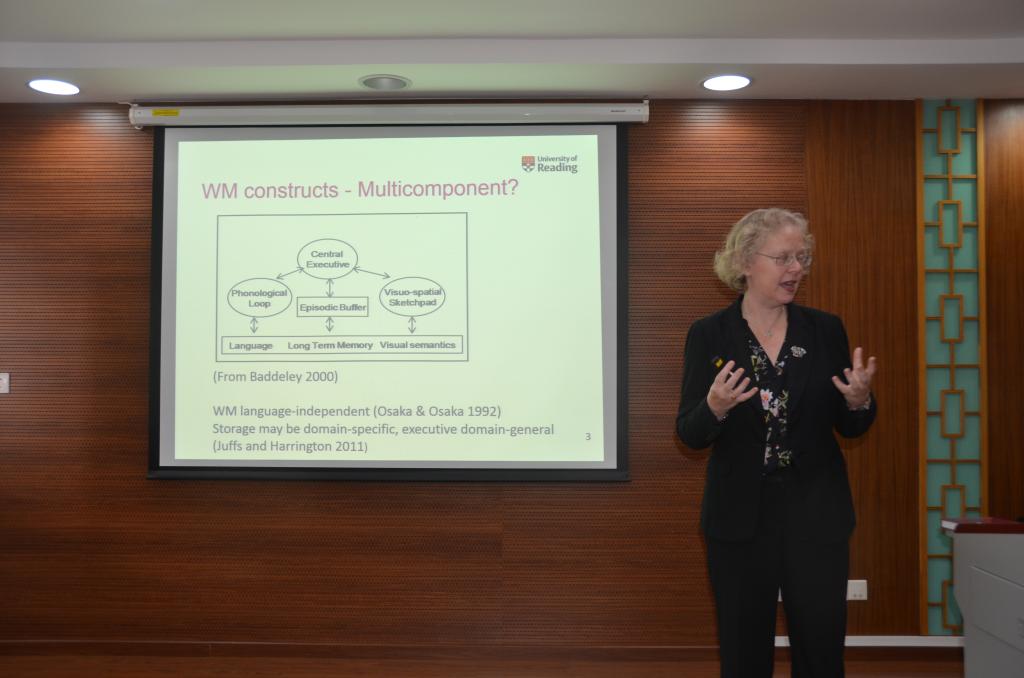Dr. Clare Wright from University of Reading was invited to give a talk to researchers and students at the lecture hall of Center for Linguistics and Applied Linguistics on the 2nd of November. In her talk, Working memory and L2 development across lifespan, Dr. Wright first briefly reviewed and critically commented on the constructs of Working memory and various models, and then introduced the value of working memory in second language acquisition (SLA), supported by evidence from empirical studies. In the final part, she pointed out some trends and possible topics for future studies in working memory in SLA across lifespan.
Dr. Wright began her talk by sharing her experience as a language teacher and language researcher. The experience helped her realize the importance of individual differences in both foreign language teaching and second language development research; one of the main sources in individual differences is working memory capacity. Then she commented on two influential models of working memory: Baddeley’s multi-component model versus Cowan’s focus-of-attention model, pointing out that although these two models provide frameworks for research projects, they are not good enough for SLA research. There are many unsolved issues, such as the domain generality versus specificity of WM, the integration of STM & LTM with WM, whether WM is language/task independent. Therefore, more theoretical and empirical work is badly needed and the research into the Chinese language, especially Chinese as an L2 may be a good candidate for enhancing the understanding of these issues.
As for the tasks to test WM capacity, Dr. Wright introduced L1/L2 reading span, listening span, digit span, operation span, and so on. She warned that so far there is no consensus regarding the best task to tap WM capacity and researchers need to be cautious when selecting a task in their research. In the end, Dr. Wright used one of her empirical studies to demonstrate how WM capacity may influence the acquisition of Wh-question in L2 learners.
During the talk, the audience, especially members from the Guangwai Bilingual Cognition and Education Lab, exchanges their views with the speakers on some important issues, such as what is the role of L1/L2 WM span in interpreting competence development, the capacity of central executive, and the domain specificity of WM task. Dr. Wright’s talk is comprehensive in literature review and inspiring in pointing out some potential research topics.

